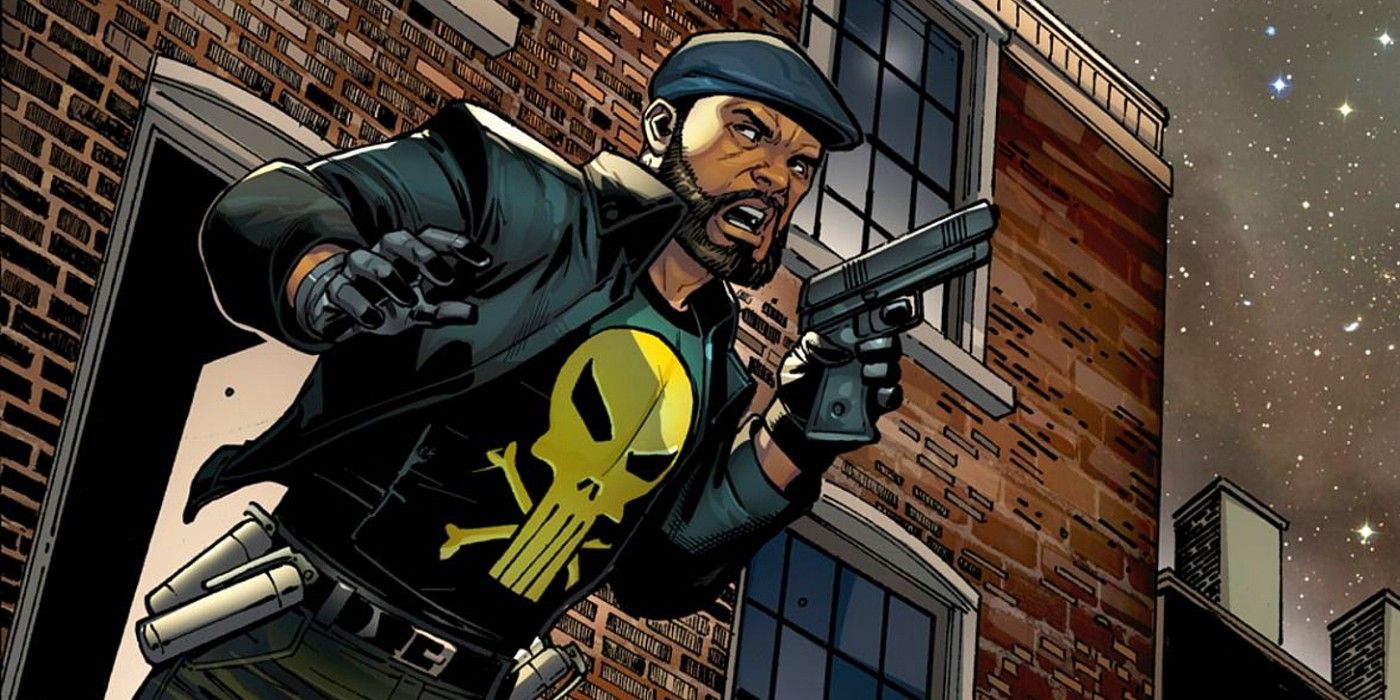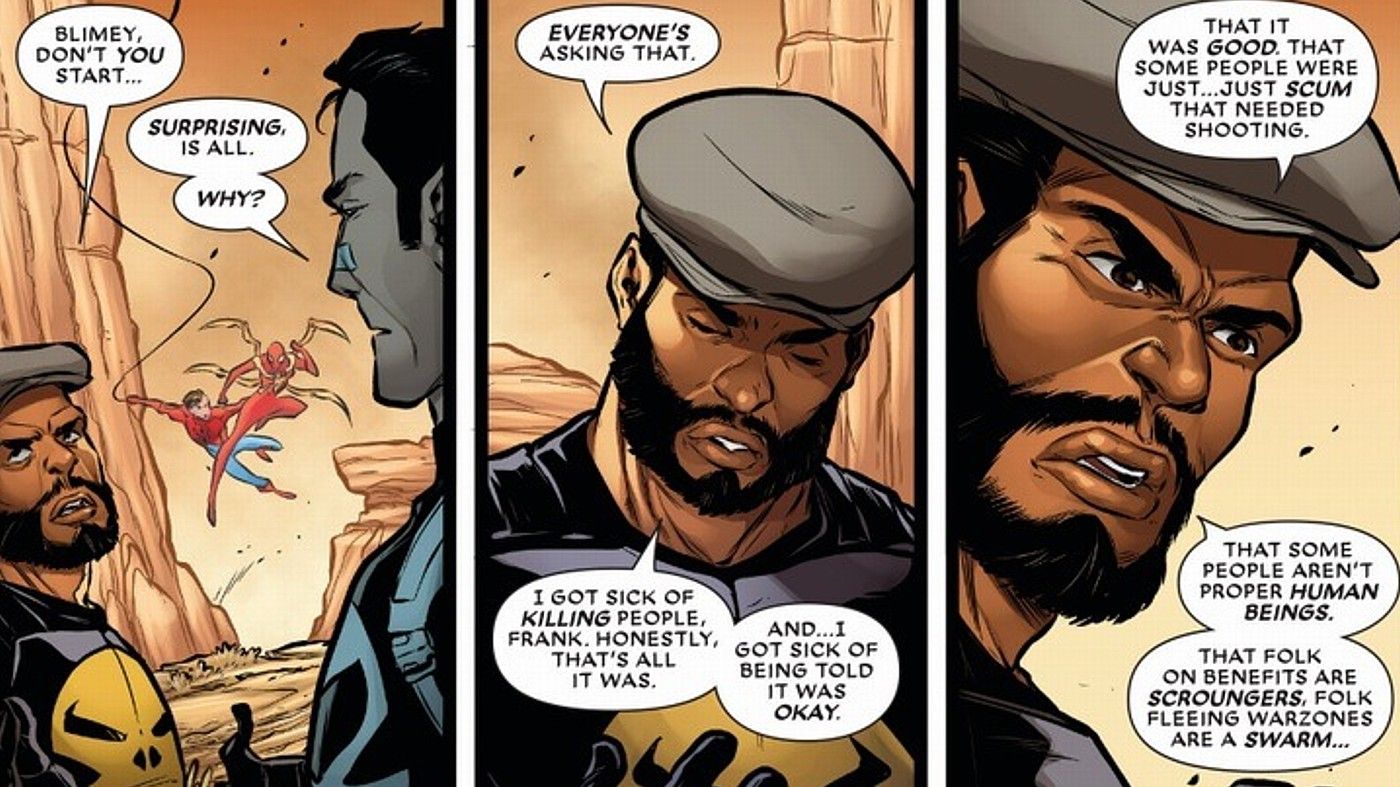Marvel's Punisher has become one of the most iconic vigilantes in all of fiction. While he may not be a superhero in the traditional sense, Frank Castle has nonetheless left his mark on the Marvel universe. One of the ways the Punisher has influenced the world of Marvel is the surprising number of copycat killers he's inspired. For example, in Garth Ennis and Steve Dillon's critically acclaimed "Welcome Back, Frank," the Punisher kills a team of murderers who foolishly tried to ask him to lead their vigilante squad. Suffice to say, the Punisher doesn't approve of most vigilantes copying him, but there is one ally he has no problem working with: Outlaw, aka Nigel Higgins, the British Punisher.
Nigel Higgins was first created in 1992 by writers Dan Abnett & Andy Lanning and artist Doug Braithwaite in Punisher Vol. 2 #64. In the comic, Outlaw serves as Frank Castle's trusted ally in the United Kingdom and one of the very few people to earn his vigilante stamp of approval. Despite having such a strong debut, Higgins would remain a relatively obscure character for the next two decades, finally resurfacing in 2015 in the most unlikely way possible. Not only has Outlaw tired of being the British Punisher, but he's so full of regret that he's found a way to bring back everyone he killed.
Higgins' return was as a reluctant participant in Al Ewing and Paco Medina's Contest of Champions mini-series. In this story, a group of heroes and villains are abducted by cosmic entities and forced to fight one another as a part of their "game" on Battleworld, a patchwork of several planets out in space. Some of these characters are taken from alternate realities, but Higgins is the real deal, even though his perspective on lethal vigilantism has shifted massively since his original incarnation.
With the Collector and the Grandmaster on opposite sides directing the war between factions, things became complicated very quickly, especially with the reveal that the Grandmaster's team also had their own version of the Punisher, one who was much more willing to kill than Outlaw. Over the course of the game, it's revealed that the Collector and the Grandmaster are actually fighting one another over the ISO-sphere, a powerful material with wish-granting capabilities that both cosmic entities want for themselves. Higgins, now remorseful of the crimes he's committed as Outlaw, has other plans for the ISO-sphere.
After the Maestro - another contender in the contest - betrays the Collector to steal the sphere for himself, Higgins swipes it from Maestro and uses his wish to reverse all of the murders he committed as Outlaw. Free from guilt, Nigel Higgins is able to return to his home in London, while the Collector takes the Maestro prisoner as punishment for his betrayal. Higgins' reality is rewritten so that he's always been a non-lethal - though still very successful - vigilante, and his skull icon becomes a golden heart with a Jolly-Roger-esque bone cross behind it.
In making this change, Outlaw acts as a direct criticism of the Punisher, outright admonishing an alternate Frank Castle on the unavoidable political aspect to killing criminals, especially without due process. He reflects that in being celebrated for his murders, he realized the reasons that some of his victims were considered expendable, using the first possible opportunity to undo his crimes. With the Punisher coming under more and more scrutiny for what his symbol has come to mean out in the real world, Nigel Higgins acts as Marvel's own critique of their lethal former marine, with Outlaw offering a look at what Frank could become in the comics if he ever chose to repent for the mountain of bodies he continues to create.


